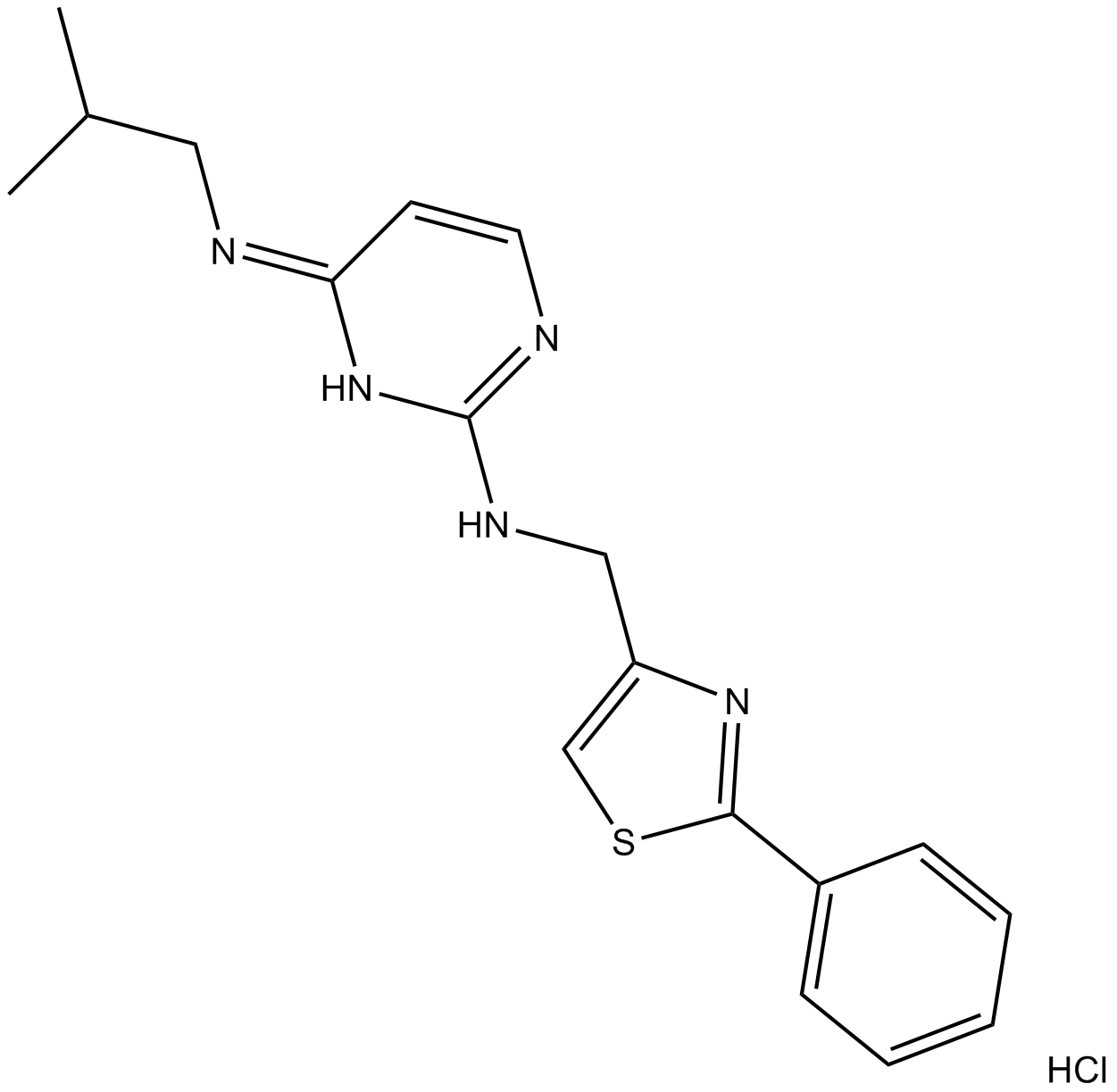KHS 101 hydrochloride |
| Catalog No.GC13582 |
neuronal differentiation inducer
Products are for research use only. Not for human use. We do not sell to patients.

Cas No.: 1784282-12-7
Sample solution is provided at 25 µL, 10mM.
KHS101 hydrochloride could selectively induce a neuronal differentiation phenotype and interacts with transforming acidic coiled-coil-containing protein 3 (TACC3).
KHS101 increases neuronal differentiation of adherently cultured rat NPCs in a dose-dependent fashion (EC50 ~1 μM). KHS101-induced neuron formation (40-60% TuJ1+ cells at 1.5–5 μM KHS101) is also observed under neurosphere-forming conditions in secondary neurospheres derived from both the hippocampus and the subventricular zone (SVZ) of adult rats. Moreover, hippocampal NPCs treated with KHS101 and cultured adherently on microelectrode arrays for 12 d exhibit neuronal morphologies as well as spontaneous spiking activity, hence indicating the presence of functional, maturing neurons[1]. KHS101 markedly attenuates tumor cell growth as compared to the cells treated with the vehicle [dimethyl sulfoxide (DMSO)]. TACC3 is a known target of KHS101 in rodent neural progenitor cells. KHS101 has been shown to cause cellular destabilization of TACC3, hence reducing endogenous TACC3 protein levels over time [2].
Tumor cell proliferation is markedly reduced in KHS101-treated tumors (about twofold). KHS101-treated tumors show signs of elevated cell death (reduced cellularity/increased pyknosis) compared with tumors treated with vehicle control. KHS101 treatment markedly reduces both frontal-to-caudal tumor expansion and corpus callosum invasion of vimentin-positive GBM1 cells. It is also found that the survival of animals carrying GBMX1 tumors (established 2 or 6 weeks before treatment) is markedly increased by the KHS101 treatment regimen for 10 weeks. None of the mice have to be removed from the study because of adverse side effects of the treatment. An additional experiment using a continuous KHS101 treatment regimen until the experimental endpoints also shows a marked increase in the survival of GBMX1-bearing animals. Histological endpoint analysis of KHS101- and vehicle-treated animals confirms a significantly decreased tumor size in KHS101-treated mice[2].
References:
[1]. Wurdak H, et al. A small molecule accelerates neuronal differentiation in the adult rat. Proc Natl Acad Sci U S A. 2010 Sep 21;107(38):16542-7.
[2]. Polson ES, et al. KHS101 disrupts energy metabolism in human glioblastoma cells and reduces tumor growth in mice. Sci Transl Med. 2018 Aug 15;10(454). pii: eaar2718.
Average Rating: 5 (Based on Reviews and 1 reference(s) in Google Scholar.)
GLPBIO products are for RESEARCH USE ONLY. Please make sure your review or question is research based.
Required fields are marked with *




